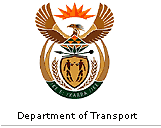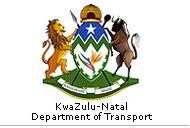 |
THE FUTURE OF RAIL FREIGHT IN KWAZULU-NATALThe Current SituationThe overall volume of rail freight in the KwaZulu-Natal
has decreased in recent years. This is because of the loss
of general freight and long distance transit traffic.
General break bulk and specialty cargo traffic has been
lost to road because of the former railway
administration’s desire to concentrate on
moving “profitable” traffic. This policy has
now been
reversed but it will not be easy to recover much of this
traffic since many former rail users have changed their
logistics systems and will not be easily persuaded to
return to earlier systems. It will require a major
marketing and service improvement effort on the part of
railway administrators to coax traffic back to rail.
Substantial reductions in current tariffs will also be
necessary. Future of rail freight in the KwaZulu-NatalRail provides vital transport support for import/export
traffic which transits the province between Durban and the
Free State, Mpumalanga, Gauteng, Swaziland and countries
to the north. It is also essential for agriculture, liquid
fuel traffic, chemicals, the cement and forestry
industries. The public are generally not aware of the
extent of this traffic, since they share the highways with
heavy road transport vehicles and this creates an
impression that most freight traffic is on road. In
contrast, railway operations take place largely out of
sight of the motorist.
The railways share of general freight traffic has
diminished in recent years but present government
investment initiatives are geared to grow both bulk and
general freight traffic. From an environmental viewpoint,
as highway congestion increases and pollution from diesel
road vehicles becomes a major issue, rail transport will
provide a better transport alternative. Increased rail
usage has been the trend in most developed countries and
should follow in South Africa, but will require joint
planning between the railway operator, provincial and
national government.
The recently announced R 65 billion recapitalisation
programme is the first major state intervention to address
declining rail cargoes. The Free State rail system should
benefit from a growth in long-haul traffic between Gauteng
and the Cape as rail services improve.
|
 |



